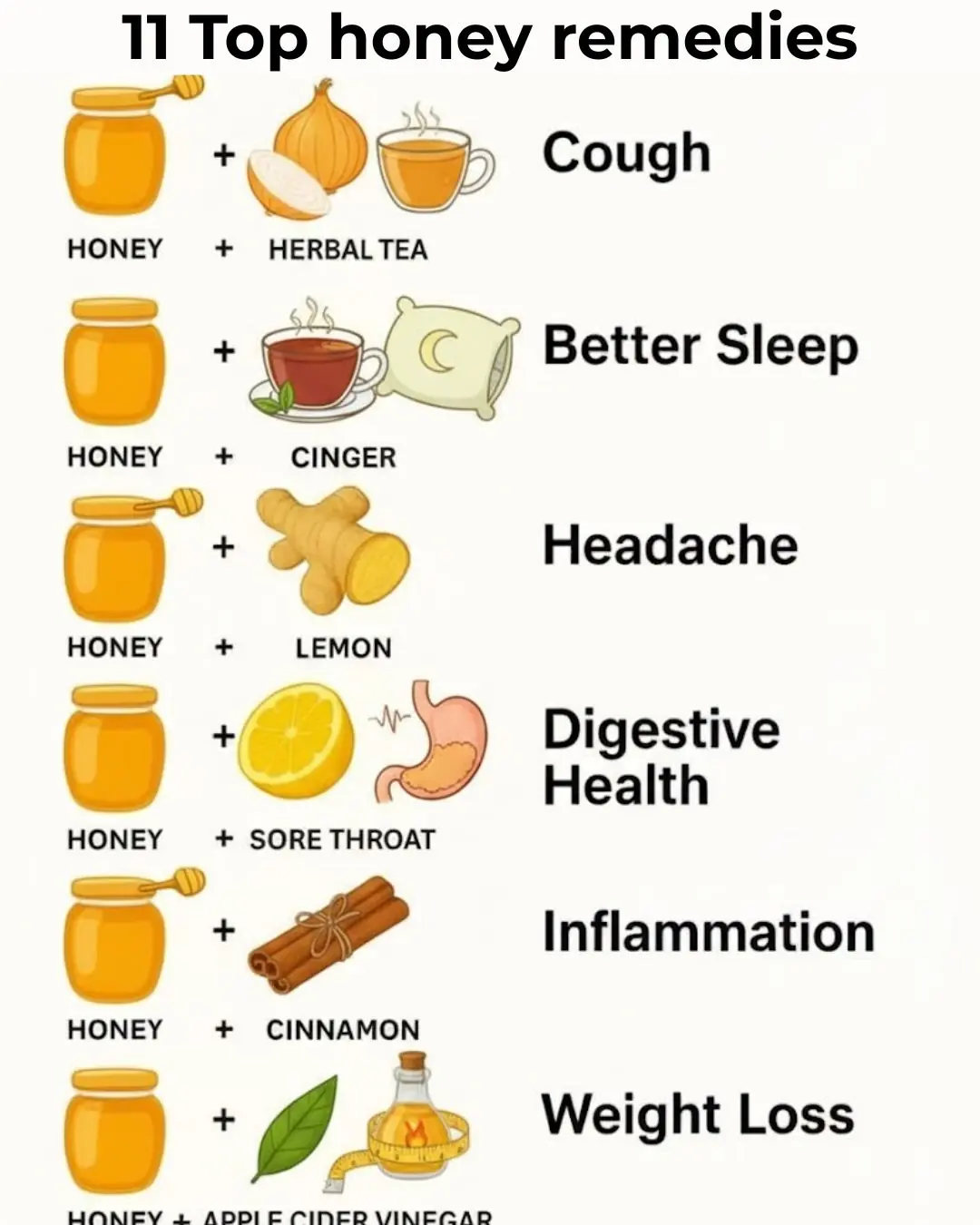
For those who eat canned tuna: you should know that
Canned tuna is a staple in many kitchens around the world — it’s convenient, affordable, and packed with protein. Whether it’s in a sandwich, salad, or straight from the can, it’s an easy go-to for a quick meal. But despite its benefits, eating canned tuna too frequently may expose you to hidden health risks. Understanding how tuna affects your body and how to consume it safely is essential for maintaining long-term wellness.
⚠️ 1. Mercury Contamination – The Hidden Danger in Your Can
Tuna is a large, long-living predatory fish. As such, it accumulates methylmercury, a toxic form of mercury, by eating smaller fish over time. This heavy metal builds up in tuna’s tissues — and ultimately in your body when you consume it.
💥 Potential health effects of mercury exposure:
-
Nervous system damage: Mercury can impair the central nervous system, causing tremors, tingling sensations, memory problems, and coordination issues.
-
Cognitive decline: Long-term exposure may contribute to reduced mental clarity, memory loss, and even mood disorders such as anxiety and depression.
-
Developmental issues in children: Mercury can cross the placenta during pregnancy and harm the developing brain of the fetus, potentially causing delays in learning, behavior, and coordination.
-
Kidney and immune damage: Mercury may place extra stress on the kidneys and weaken the immune system, reducing the body’s ability to fight infections and inflammation.
💡 What you should know:
-
White (Albacore) tuna typically contains three times more mercury than light (Skipjack) tuna.
-
Consuming tuna daily or multiple times per week can result in mercury levels that exceed safe thresholds, especially in vulnerable groups like pregnant women and young children.
🧂 2. High Sodium Content – A Silent Threat to Heart Health
Many canned tuna products are preserved with added salt, which enhances flavor and shelf life. However, the sodium levels in some brands are alarmingly high — and that can be dangerous over time.
💥 How high sodium affects your health:
-
High blood pressure (hypertension): Excess sodium causes water retention, which increases blood volume and forces your heart to work harder.
-
Swelling and bloating: Water retention from salt can cause puffiness, especially in your extremities and face.
-
Kidney strain: The kidneys must work overtime to process large amounts of sodium, potentially leading to long-term damage and increased risk of kidney disease or stones.
💡 Healthier option:
-
Opt for low-sodium or no-salt-added canned tuna varieties.
-
Rinse the tuna briefly under water before eating to reduce excess sodium, especially if you're using regular canned varieties.
🧴 3. BPA Exposure – A Chemical You Didn't Know You Were Eating
Many canned goods, including tuna, are lined with bisphenol A (BPA) — a chemical used in the lining to prevent metal corrosion. Unfortunately, BPA can leach into the tuna, especially when exposed to heat or stored for extended periods.
💥 Potential health risks of BPA:
-
Hormonal disruption: BPA mimics estrogen, which may interfere with the body’s natural hormone balance in both men and women.
-
Increased cancer risk: Some studies have linked BPA exposure to a higher risk of breast and prostate cancers.
-
Metabolic issues: BPA may contribute to obesity, insulin resistance, and fertility problems over time.
💡 Safe choice:
-
Always look for canned tuna labeled "BPA-free".
-
Consider tuna packaged in pouches, which are less likely to contain BPA.
🐟 4. How Much Tuna Is Safe to Eat?
Health professionals recommend setting limits on canned tuna intake depending on the type of tuna and your individual health status.
| Group | Type of Tuna | Safe Weekly Limit |
|---|---|---|
| Healthy adults | Light (Skipjack) | 2–3 cans (6 oz each) |
| Healthy adults | Albacore (White) | 1 can per week |
| Pregnant women/children | Any type | 1–2 small servings per month |
| People with kidney/liver issues | Any type | Avoid or eat rarely |
💡 Tip:
-
Rotate tuna with lower-mercury fish, such as:
-
Salmon
-
Sardines
-
Rainbow trout
-
Atlantic/Pacific mackerel (not King mackerel)
-
Tilapia
-
-
These alternatives are rich in omega-3s and contain far less mercury.

🥗 5. The Benefits of Tuna – When Eaten in Moderation
Despite its risks, canned tuna can still be a nutritional asset when eaten responsibly.
✅ Health benefits:
-
High-quality protein: Aids in muscle repair and growth, especially post-exercise.
-
Omega-3 fatty acids: Promote heart health, reduce inflammation, and support brain function.
-
Low in fat and calories: Ideal for weight control and maintaining lean muscle.
-
Micronutrients: Tuna contains selenium, which supports thyroid function, and vitamin D, essential for bone and immune health.
🍽️ 6. How to Make Tuna a Healthier Meal
Small tweaks can make your canned tuna meals much healthier — and tastier too.
Smart preparation tips:
-
Mix with fresh veggies like cucumber, tomato, spinach, or avocado for added fiber and nutrients.
-
Use olive oil and lemon juice instead of mayonnaise to reduce unhealthy fats and calories.
-
Add tuna to whole grains like brown rice or quinoa for a balanced, energy-sustaining meal.
-
Choose tuna packed in water, not oil, to reduce unnecessary fat intake — especially if you’re watching your weight.
💊 7. Should You Take Fish Oil Supplements Instead?
If you're worried about mercury exposure but still want omega-3s, consider fish oil or algae-based supplements.
Benefits of supplements:
-
Made from purified fish or plant-based sources, meaning no mercury or contaminants.
-
Often molecularly distilled to remove heavy metals.
-
Convenient for those with dietary restrictions or allergies.
💡 Note:
-
Always choose high-quality supplements that are third-party tested and labeled “mercury-free.”
🔁 8. Avoid Overreliance on Tuna
Some people eat canned tuna almost daily for its convenience or high protein — but this habit can backfire over time.
Why variety matters:
-
Constant exposure to mercury can gradually harm your health.
-
Overreliance on one food means missing out on other vital nutrients found in a diverse diet.
Better protein alternatives:
-
Eggs
-
Chicken breast
-
Lentils and beans
-
Greek yogurt
-
Tempeh or tofu
-
Lean beef (in moderation)
Eating a variety of protein sources ensures better overall nutrition and protects you from toxic buildup.
✅ Final Takeaway: Eat Smart, Stay Safe
Canned tuna isn’t inherently bad — but it’s not something you should eat mindlessly or daily.
Key reminders:
-
Tuna can be part of a healthy diet when eaten in moderation.
-
Watch out for mercury, sodium, and BPA exposure.
-
Choose light tuna, BPA-free cans, and low-sodium options.
-
Vary your diet with other proteins and low-mercury fish.
-
If in doubt, talk to your healthcare provider — especially if you’re pregnant, breastfeeding, or managing chronic conditions.
By being informed and intentional with your choices, you can enjoy tuna’s benefits without compromising your health.
News in the same category


12 Powerful Natural Painkillers Found in Your Kitchen

11 Honey Remedies That Truly Work

The only 3 exercises you need to improve leg circulation

What Really Happens to Your Heart During a 5-Day Fast: A Day-by-Day Breakdown

The Magnesium Solution: 10 Essential Foods to Naturally Conquer High Blood Pressure

If You Have High Blood Pressure, NEVER Do This in the Morning

How to Make Alkaline Water to Fight Fatigue, Digestive Issues, and Cancer

Why Drinking Water on an Empty Stomach Is Beneficial

People Left Disgusted: Shocking Truth About How Crabsticks Are Made

Alarming Study Links Eating Ramen Often to Early Death

This is what happens to your body if you eat eggs for breakfast.

This may be the first sign of Alzheimer’s

3 types of cheap vegetables in the market help treat melasma effectively: Crush them and apply them to your face to see

10 Warning Signs Your Liver is Overloaded with Toxins Don’t Ignore These!

Doctors Urge: Don’t Ignore Unexplained Bruising These Hidden Reasons Could Be the Cause

Struggling to Sleep? A Famous Doctor’s 60-Second Trick Could Change Your Nights Forever

10 Urgent Warning Signs You’re Eating Too Much Sugar

Holding Cloves in Your Mouth: A Natural Way to Relieve Toothache
News Post

What Your Lips Say About Your Health

Important News for Everyone Who Loves a Daytime Nap

The Night Edith Found Her Angels at a Waffle House

The Dog Who Healed Our Hearts: A Story of Rescue, Love, and Second Chances

A Night at McDonald’s That Changed a Life — And Mine

Beyond the Badge: A Police Officer’s Reflection on True Community Connection

Koda the Christmas Bandit: The Dog Who Unwrapped Every Gift Under the Tree

A Brother’s Gift: Caleb’s Courage for His Sister Libby

Two Brothers, One Battle: The Scotts’ Fight for Life and Hope

An Elephant’s Cry, A Human Answer.

The Farmer’s Slow Lane

The Gift of a Grandfather Without Bloodlines.

12 Powerful Natural Painkillers Found in Your Kitchen

11 Honey Remedies That Truly Work

4 Dangerous Mistakes When Using an Air Fryer That Can Lead to Poisoning, Cancer, and Even Fires

The Secret of Our Hand to Show RICH or POOR…

The Purpose of the Overflow Hole in Your Sink You Never Knew

Only 2% Know This Ancient Spice Can Clean Lung Mucus Overnight 💥

🌿 SENIORS: This 1 Leaf DESTROYS Diabetes & Melts Belly Fat (Doctors HATE It!) | Barbara O’Neill
